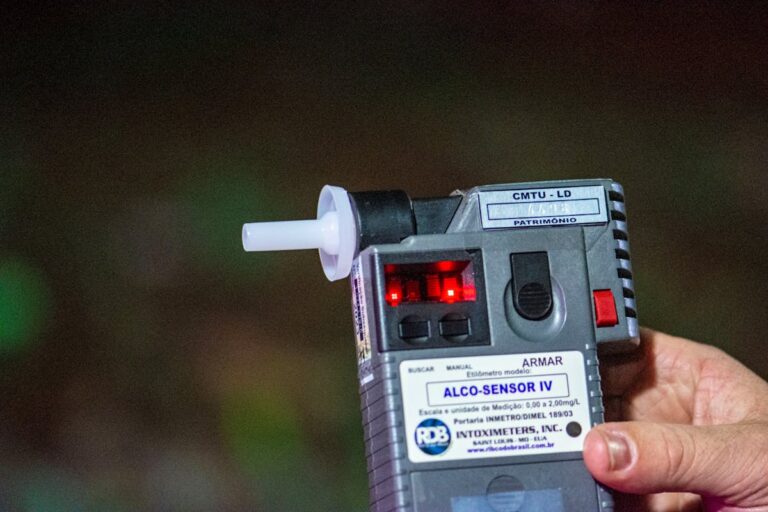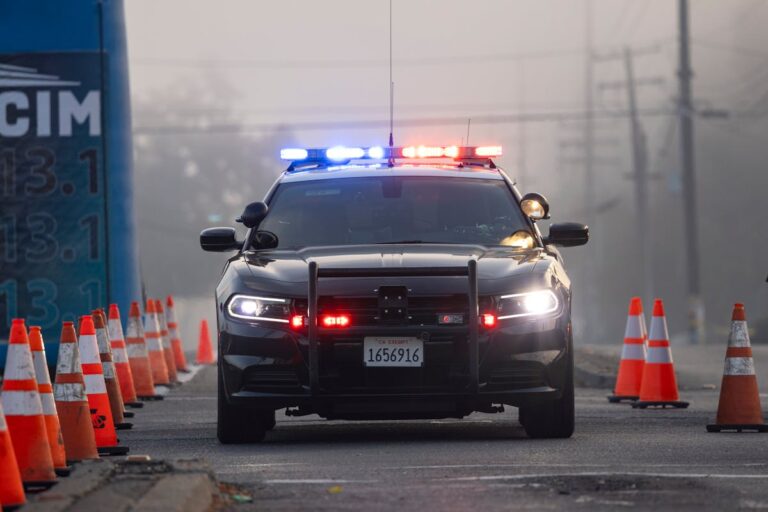Why Seeking a DUI Attorney’s Advice Can Protect Your Rights

The intricate nature of DUI cases necessitates a thorough understanding of legal procedures and rights, something that a qualified DUI attorney offers. Such attorneys bring to the table a wealth of experience, expertise in DUI laws, and a keen eye for identifying potential rights infringements. By seeking their counsel, you gain insights into your options and the potential ramifications of your charges, factors that could dramatically alter your case’s outcome. Hence, it is worth considering, how can professional legal guidance fortify your position in the face of a DUI charge?
Understanding DUI Charges
While many perceive DUI charges as straightforward, the legal complexities that surround them can be quite intricate and challenging to understand. Each state has its unique laws regarding DUI penalties, which can range from fines to jail time, and even license revocation. Penalties may be compounded by factors such as the driver’s age, the presence of minors in the vehicle, or prior convictions.
However, there are also DUI defenses that can be employed in certain scenarios. These defenses generally revolve around challenging the legality of the traffic stop, the administration and accuracy of the breathalyzer test, or arguing the impairment was not due to alcohol or drugs. A thorough understanding of these complexities is essential for anyone involved in a DUI case.
Your Rights Under DUI Law
How well do you understand your rights under DUI law? It’s essential to recognize that DUI rights encompass a range of legal protections designed to guarantee fair treatment during the process. Initially, you have the right to remain silent to prevent self-incrimination. In addition, you have the right to refuse field sobriety tests, though this could lead to immediate license suspension in some jurisdictions. Thirdly, you possess the right to a fair trial where evidence like breathalyzer results will be scrutinized. Finally, you have the right to legal representation, either privately hired or court-appointed if you cannot afford one. Understanding these DUI rights can greatly impact the outcome of your case, hence the necessity to seek professional advice.
The Role of a DUI Attorney
The role of a DUI attorney is multifaceted and essential in two key aspects: understanding DUI legalities and steering through the court process. These professionals provide expert guidance on complex DUI laws, regulations, and procedures, helping clients comprehend the potential implications and consequences of each scenario. In addition, they lead clients through the often intimidating court process, ensuring that their rights are protected, and the best possible outcome is achieved. If you’re facing charges in Florida, seeking a DUI attorney’s advice can help you navigate the legal system effectively and build a strong defense tailored to your case.
Understanding DUI Legalities
In order to fully comprehend the complexity of DUI legalities, one must first grasp the critical role filled by a DUI attorney. These specialized lawyers have intricate knowledge of DUI penalties and laws, providing invaluable counsel to those facing charges. DUI attorneys are adept at scrutinizing the circumstances of a DUI arrest, identifying potential DUI defenses, and relentlessly advocating for their clients’ rights. They understand the nuances of field sobriety tests, blood-alcohol level interpretations, and the legality of traffic stops. This expertise can greatly impact the outcome of a case, potentially reducing penalties or even achieving a dismissal. Consequently, understanding DUI legalities isn’t merely about knowing the law, but recognizing the essential function of a competent DUI attorney within it.
Navigating the Court Process
Maneuvering the court process after a DUI arrest can be an intimidating task. This is where the role of a DUI attorney becomes invaluable in providing legal representation.
- Understanding Court Procedures: A DUI attorney can help decode the complex court procedures, ensuring that you understand every step of the legal process.
- Legal Representation: They represent your interests in court, arguing your case, and influencing proceedings in ways that protect your rights and offer you the best potential outcome.
- Guiding Through Potential Outcomes: An experienced attorney can evaluate potential consequences and advise on the best course of action, reducing uncertainty.
Obtaining legal representation is not simply about defending oneself; it’s about managing the court process effectively and protecting your rights.
Assessing Your Case’s Strength
How strong is your DUI case? This question is pivotal and requires careful examination. A critical step in this process involves evaluating evidence. This includes, but is not limited to, sobriety test results, video footage, witness testimonies, and police reports. Each piece of evidence either bolsters or weakens your case, and understanding its impact is vital.
Furthermore, predicting case outcomes can be complex. This is where an experienced DUI attorney can provide invaluable perspective. They can objectively analyze the evidence, assess its strengths and weaknesses, and use their expertise to forecast potential outcomes. This evaluation can help inform your defense strategy, potentially leading to reduced charges or even dismissal. Remember, each case is unique, and a professional assessment of your case’s strength is essential to protect your rights.
Navigating the Legal Process
While traversing the legal process may seem like an intimidating task, it is an essential part of defending against a DUI charge. Understanding legal terminology and court procedures can make this process less overwhelming.
- Legal Terminology: Comprehending legal jargon used in DUI cases is vital. It includes terms like “implied consent”, “breathalyzer”, and “field sobriety tests”. Familiarity with these terms can help you understand the charges and potential defenses.
- Court Procedures: Grasping the procedural aspects can prevent you from making detrimental errors. This includes knowing when and how to file certain motions, and understanding the sequence of a trial.
- Role of an Attorney: A DUI attorney can guide you through these complexities, ensuring your rights are protected throughout the legal process. Their expertise is invaluable in steering through the system effectively.
Negotiating Plea Deals
Negotiating a plea deal is another complex layer in the DUI legal process. This intricate stage involves plea negotiations between the defendant’s attorney and the prosecutor. The objective is to reach an agreement that is less severe than the possible punishment if convicted at trial. A proficient DUI attorney can strategically use defense strategies during these negotiations. These strategies may include leveraging weaknesses in the prosecution’s case, asserting the defendant’s rights, or highlighting mitigating circumstances. This can result in reduced charges, lighter penalties, or even case dismissal. Consequently, the advice of a DUI attorney is invaluable, particularly during plea negotiations. Their expertise allows for an informed, well-structured defense that can greatly impact the final outcome of the case.

Challenging DUI Evidence
In addressing the complexities of DUI cases, it is essential to scrutinize the evidence involved, which forms the bedrock of any legal argument. This examination should encompass understanding the nature of DUI evidence, identifying potential errors in its collection or handling, and questioning the reliability of tools such as breathalyzers. Through careful review and strategic challenges, the defense can create a robust counterargument to prosecution claims.
Understanding DUI Evidence
How does one challenge DUI evidence? Understanding the evidence involved in a DUI case is foundational for a strong defense. The evidence typically includes breathalyzer results and field sobriety tests, both of which can be subject to challenge.
- Breathalyzer Accuracy: The reliability of breathalyzer results can be questioned. Factors such as machine calibration, the officer’s training, and the timing of the test might affect the results’ accuracy.
- Field Sobriety Tests: These tests’ validity can be contested. Conditions like physical disability, nervousness, or uneven ground could potentially influence the performance and results.
- Witness Statements: If available, statements from witnesses can provide alternative perspectives on the incident.
An experienced DUI attorney can help scrutinize this evidence, increasing the chances of a favorable outcome while protecting your rights.
DUI Evidence Errors
While understanding DUI evidence is essential, identifying errors in such evidence can often be the key to a successful defense. This process, known as DUI evidence challenges, involves scrutinizing the collection, storage, and presentation of evidence. Errors may range from procedural blunders, such as improper handling of blood samples, to technical faults, like faulty equipment calibration.
Evidence admissibility issues also frequently arise in DUI cases. For instance, evidence obtained through unlawful search and seizure may be deemed inadmissible. Consequently, a proficient DUI attorney should have the ability to identify and challenge any anomalies in the evidence against you. By doing so, they can greatly weaken the prosecution’s case, protecting your rights and increasing your chances of a favorable outcome.
Contesting Breathalyzer Results
Ever thought about the accuracy of breathalyzer results in DUI cases? It’s essential to understand that breathalyzers, like any technology, are prone to malfunction and can present erroneous results. Legal defenses often hinge on contesting these results effectively.
Here are three important points to reflect on:
- Breathalyzer Calibration: Breathalyzers require regular calibration to guarantee accuracy. Failure to do so can lead to a breathalyzer malfunction, rendering results unreliable.
- Operator Error: The device’s accuracy considerably depends on the operator’s proficiency and adherence to correct procedures.
- Medical Conditions: Certain medical conditions can skew breathalyzer results, providing a valid legal defense in some cases.
Understanding these factors is pivotal in challenging DUI evidence, hence the need to seek professional legal advice.
The Consequences of Self-Representation
Maneuvering through the legal landscape after a DUI charge can be an intimidating task. The choice of self-representation brings inherent risks, mainly due to the legal complexities surrounding DUI cases. One consequence of this choice is the potential for misinterpretation of legal nuances, which could lead to severe penalties. The intricacies of DUI laws, coupled with procedural requirements, form a formidable maze that the untrained individual may find challenging to navigate. Another risk lies in the domain of plea bargaining, where a layman’s lack of legal knowledge could result in unfavorable outcomes. Finally, the emotional toll of the process may cloud judgment, leading to poor decision making. These self-representation risks underscore the importance of seeking professional legal advice.
Benefits of Hiring a DUI Attorney
Maneuvering through the legal maze of a DUI charge can be greatly eased by engaging the services of a proficient DUI attorney. The DUI attorney benefits are far-reaching and integral to a fair and just resolution of your case.
- Legal Expertise: A DUI attorney has extensive knowledge of DUI laws and regulations. They can navigate complex legal procedures, presenting strong defenses that can potentially mitigate charges or penalties.
- Strategic Representation: They can effectively handle negotiations, plea bargains, and courtroom representations, potentially reducing your sentence or even getting the case dismissed.
- Protection of Rights: A DUI attorney guarantees your rights are not violated during the legal process, making sure evidence against you was obtained legally.
In essence, hiring a DUI attorney is a strategic move to protect your rights and guarantee a fair legal battle.
Frequently Asked Questions
What Are the Costs Associated With Hiring a DUI Attorney?
The costs of hiring a DUI attorney vary considerably based on case complexity, attorney’s experience, and geographical location. The expenses primarily include attorney fees, which some lawyers offer payment plans for to ease the financial burden.
How Long Does a Typical DUI Case Last?
The duration of a typical DUI case varies based on several DUI timeline factors such as court schedules, complexity of the case, and legal strategies employed. Generally, it can range from one month to a year.
Can a DUI Conviction Affect My Employment Opportunities?
Yes, a DUI conviction can considerably impact employment opportunities. Employers often conduct background checks and DUI consequences may include employment discrimination, as some sectors view such convictions as indicative of risky behavior.
What Influence Does a DUI Charge Have on My Driving Record?
A DUI charge can greatly impact your driving record. It may lead to suspension of driving privileges, hefty fines, and other legal consequences. The charge remains on the record, affecting future insurance premiums and employment opportunities.
Can a DUI Attorney Help to Expunge a DUI Conviction From My Record?
Yes, a DUI attorney can guide you through the complex expungement process, ensuring you meet all legal requirements. They can effectively argue your case, increasing the likelihood of a successful record expunction.



